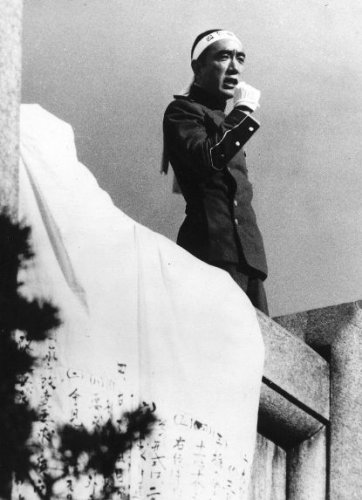What's the Appeal of Mishima Yukio?
 A while back, while visiting a friend of mine, I mentioned having recently re-watched Paul Schrader’s fascinating biographical film Mishima: A Life in Four Chapters. He had never heard of Mishima Yukio, and after explaining that he’s famous as one of Japan’s greatest novelists and infamous for committing suicide in spectacular fashion in 1970, he asked why I had such obvious admiration for a man who committed suicide, which, being a faithful Catholic, I consider to be an inherently evil action.
A while back, while visiting a friend of mine, I mentioned having recently re-watched Paul Schrader’s fascinating biographical film Mishima: A Life in Four Chapters. He had never heard of Mishima Yukio, and after explaining that he’s famous as one of Japan’s greatest novelists and infamous for committing suicide in spectacular fashion in 1970, he asked why I had such obvious admiration for a man who committed suicide, which, being a faithful Catholic, I consider to be an inherently evil action.